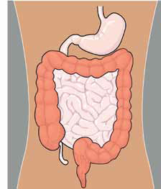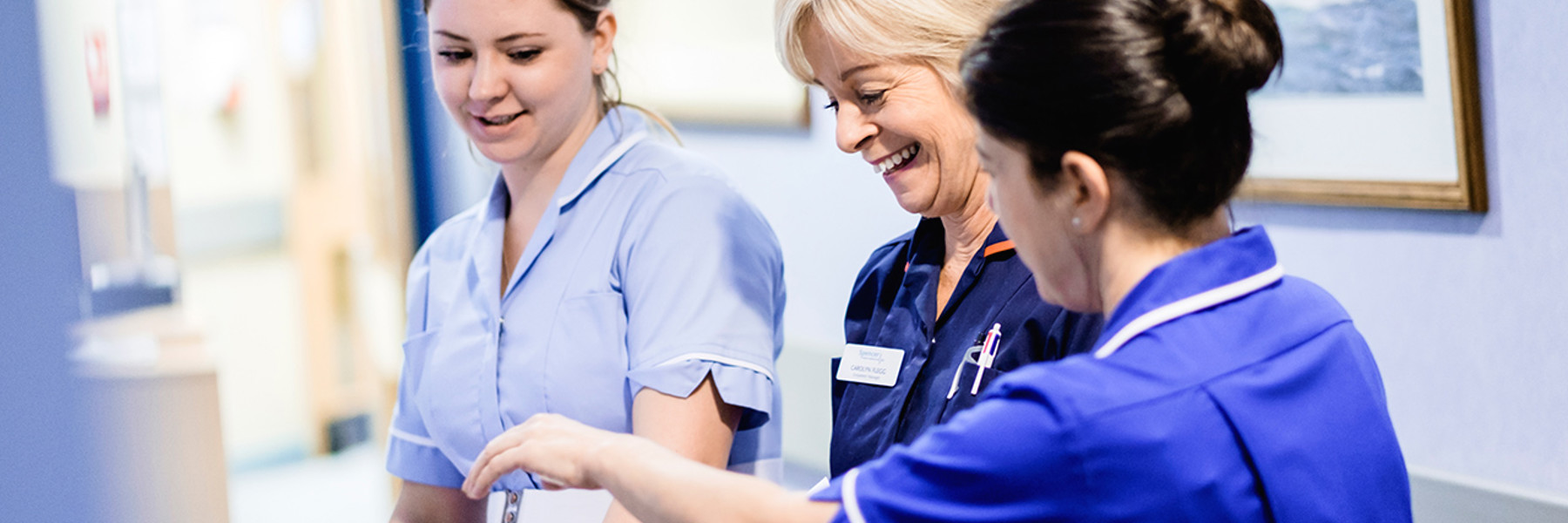Colonoscopy
What is a colonoscopy?
A colonoscopy is a medical procedure and examination which allows the endoscopist to look directly at the lining of the large intestine or colon using a colonoscope - a flexible tube about the thickness of an index finger. This procedure not only entails visual inspection but also permits the endoscopist to obtain tissue samples for laboratory analysis — a process known as biopsy.
Examinations will help to identify polyps - if these are found, they can be promptly removed, thereby facilitating comprehensive evaluation and potential preventive measures to ensure optimal colorectal health.
Preparing for a colonoscopy test
 | For this examination to be successful and allow a clear view of the colon, your bowel must be as empty as possible. If the bowel is not sufficiently empty the whole procedure may have to be cancelled and repeated on another occasion. This precaution is crucial to minimise the risk of the endoscopist overlooking significant indicators. Research suggests that patients diagnosed with bowel cancer within two years of a prior colonic examination likely had it undetected during the initial examination, a phenomenon now recognised as Post Colonoscopy Colorectal Cancer Syndrome (PCCCS). See the ‘Instructions for Bowel Preparation’ leaflet enclosed. It is important to follow the advice given about bowel preparation. |
- If you have diabetes or haemophilia, please phone the ward for specific advice.
- If you are taking warfarin, clopidogrel, or other blood-thinning medications, please inform us at least one week before the test.
- If you have a pacemaker or ICD, please inform us at least one week before the test.
- You may continue to take other medications as normal, except iron tablets or stool bulking agents (such as Fybogel, Regulan, Proctoibe) which should be stopped one week before your examination.
- Please bring a list of any medications you are currently taking.
- If you have any queries about your medication, please ring the ward.
- It is especially important to remember to bring any asthma inhalers or angina sprays with you.
- Do not bring any valuables to the ward.
- Please remove your nail polish and all types of false nails before attending for your procedure.
- Please bring with you your dressing gown, slippers, and something to read during your stay.
- Patients feel a spare set of underwear is useful.
Please click the links for a Colonoscopy Timetable and a recommended Diet Sheet.
FAQs about a colonoscopy test
Before explaining the colonoscopy procedure, several preparatory steps ensure your comfort and safety throughout. Here's what you can expect during your colonoscopy journey:
- A small needle will be placed into a vein. The needle is then removed leaving a small plastic tube. A sedative and/or painkiller is injected before the examination. This makes you feel relaxed but rarely induces sleep. (This will be left lightly taped to your hand/arm until you are recovered from the procedure then removed after the procedure is completed).
- A small device for recording pulse and breathing (called a finger probe) will be attached to your finger and you will be given oxygen using a tube up your nose.
- A cuff will be placed on your arm to monitor your blood pressure (please inform the nurse if there is a reason why a certain arm cannot be used).
- A rectal examination will be performed by the endoscopist before the procedure.
- Then while you are lying comfortably on your left side the endoscopist will gently insert the colonoscope into your back passage and pass it around the large bowel.
- Air will be passed into the bowel to expand it so the bowel lining can be seen more clearly. This may give you some discomfort, but it will not last long. You may need to pass wind during your procedure. This is normal and the endoscopist is used to it. Please do not be embarrassed.
- A biopsy (a small sample of the lining of your bowel) may be taken during the examination to be sent to the laboratory for more tests. You cannot feel this. (A video recording and/or photographs may be taken for your records).
- Similarly, any polyps may be removed during the examination, but you will not feel this either.
- Polyps are small growths in the lining of the bowel; they are not cancerous but could turn into cancer in years to come if not removed. Polyps are removed at colonoscopy by cutting them out.
- This is done by placing a small loop of wire through which a low current of electricity is passed, causing the stem to be burnt through.
- Afterwards, the colonoscope is removed easily.
While colonoscopy is generally considered a safe procedure, it's important to acknowledge there are some risks associated with this procedure.
These include:
- A reaction to the sedative. The sedative can affect your breathing making it slower and more shallow.
- When a biopsy is taken or a polyp is removed, rarely there may be a little bleeding (risk approximately one for every 100 to 200 examinations where a polyp is removed). If this does not stop within 24 hours or is excessive, please contact the Spencer Private Hospital Ward or Accident and Emergency (A&E).
- Perforation, which is a little tear in the wall of the colon, is also rare (risk approximately one for every 1000 examinations). This would require a short stay in hospital and treatment with antibiotics, or very occasionally may require surgical repair.
- A feeling of bloating due the air we need to insert so we can clearly see where we are.
Please talk to your endoscopist before your examination if you have any worries about these risks.
Yes, there is a CT Pneumocolon and a Barium Enema. They both require the same kind of bowel preparation as a colonoscopy, but they do not allow the removal of polyps or the taking of biopsies, meaning that you would probably require a colonoscopy afterwards.
Upon arrival at your surgery, please report to the reception of Spencer Private Hospital and a nurse will check your details, blood pressure, and pulse. If you are allergic to anything (such as medicine, latex, plasters), please tell the nurse.
You will have the test explained to you during your admission and then be asked to sign a consent form.
You do not need to change but should remove your coat or jacket. You will also be asked to remove any spectacles, contact lenses, tongue studs, and dentures (if you have them). A nurse will stay with you throughout the examination.
Please do not hesitate to ask any questions you may have.
Once the procedure is complete, you will return to the ward area to rest. Once recovered you may eat and drink as normal. You may still have a little wind; this is natural so don't worry. The nurse will then tell you the result of the examination before you go home. Any biopsy result will take longer.
If you had the sedative injection, you must have a friend or relative with transport to collect you from the ward and stay with you at home for at least 24 hours until you are fully recovered.
You are advised not to drive, drink alcohol, operate machinery (including an electric kettle), or sign important documents for 24 hours following the sedative.
You may notice that your bowels do not return to normal for a few days following the procedure.
A letter will be sent to your GP disclosing any further results.
If you develop any severe pain in the neck, chest, or abdomen within the first 24 hours of your procedure please phone Accident and Emergency.
